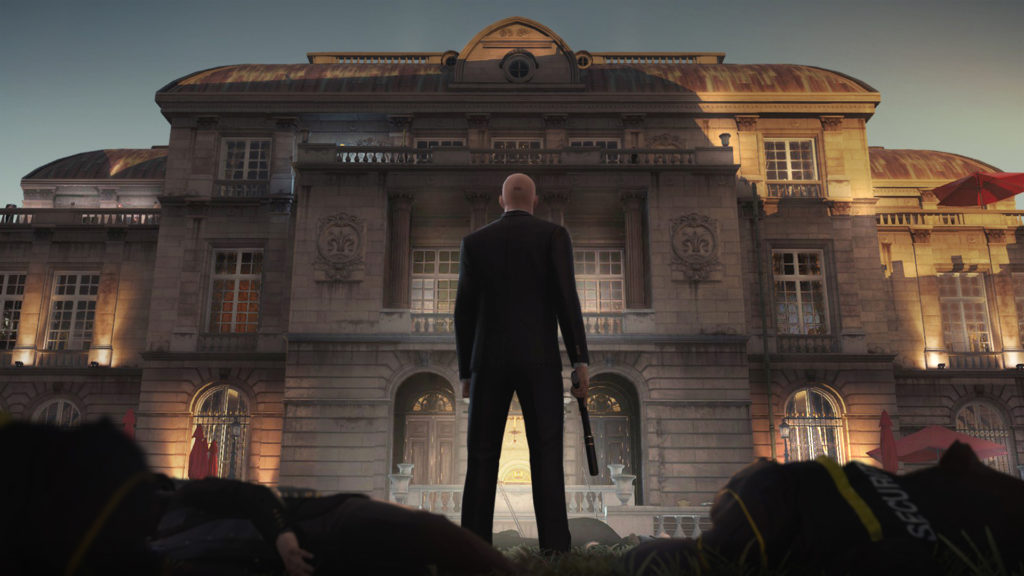Developer IO Interactive is best known for its Hitman franchise, where players have the opportunity to put on the suit of a professional assassin tasked with eliminating targets using whatever creative means they can come up with. The company took a big chance with the most recent release of the game, simply titled Hitman, by launching it as an episodic game supported with live events, but fans ended up warming up very nicely to the new format.
Players would receive new locations on a regular basis—usually a month or two—with a target that progressed the main story. However, to keep players engaged between episodes, IO Interactive released elusive targets—contracts that players have only one opportunity to complete or fail. Among these elusive targets is actor Gary Busey, who won a fan vote against fellow actor Gary Cole for the honor of being killed in the game. In making a case for himself in the humorous promotional video, one of the villainous things Busey did was kidnap vegetarian kids and raise them on meat.
The first season of Hitman draws to a close with the launch of the disc version on January 31. This release will include all the content from the game except for past elusive targets. It also puts Hitman in the unique position of being a game that started as a traditional franchise, became an episodic live game service, and will soon have a kind of traditional game release.
IO Interactive’s creative director, Christian Elverdam, recently sat down with [a]listdaily to discuss the many facets of Hitman, how it maintained player engagement over the first season, and how Gary Busey ended up in the game.
In discussing the reasoning behind creating Hitman as an episodic game, Elverdam said: “For us, it meant that the game would feel alive. The game world and community would feel as though this were a living and breathing experience. There would be a feeling of co-presence—a little like watching a football or basketball game, following your favorite team live and knowing that other people are watching. We knew that since everyone would be on the same mission that there would be a feeling of co-presence in sharing the discovery of each location and finding the different elements.”
“There was also the feeling of an ever-expanding game,” he continued. “The way Hitman starts is certainly not how it ends in terms of what content is available. Some people have called it the game that keeps on giving, and I think that’s something you can only get from a service game—one that insists on expanding its content regularly.”
Elverdam also explained how the idea to turn Hitman into a service game came very early on. “We decided about four years ago that we would do a game like this,” he said, “because there was a trend happening with the next (now current) generation of consoles and how Microsoft and Sony were starting to see their platforms. For the longest time, it was possible to do a service game (a game with frequent updates) on PC, but until the PlayStation 4 and Xbox One, Sony and Microsoft weren’t on par with the flexibility of the PC. So, we saw that by the time we were ready to launch the next Hitman game, it would be a kind of service game on consoles. We had some interesting conversations with Microsoft and Sony because we were one of the first to do this.”
 In describing what differentiated Hitman from traditional games that were supported with DLC updates, Elverdam said that it was “the desire to integrate the way people are playing the game. A crucial example is the disguise system, which has been a notorious sore thumb for a lot of Hitman games. Knowing that the disguise system worked by the second epiode allowed us to experiment with the disguise rules in the final episode of the season. Focusing on how people are engaging with the game made a big difference for us.”
In describing what differentiated Hitman from traditional games that were supported with DLC updates, Elverdam said that it was “the desire to integrate the way people are playing the game. A crucial example is the disguise system, which has been a notorious sore thumb for a lot of Hitman games. Knowing that the disguise system worked by the second epiode allowed us to experiment with the disguise rules in the final episode of the season. Focusing on how people are engaging with the game made a big difference for us.”
How did IO Interactive get Hitman fans used to this new format? “That’s sort of what I call the fairy tale journey,” said Elverdam. “It started off rough, in that people were quite skeptical. The reason we wanted to go episodic with Hitman specifically is twofold. One is that it fulfills the fantasy of being an assassin who gets assignments over time and has to travel the world. The other thing was a fundamental problem within the Hitman franchise, in that it’s very detailed and has a lot of layers to discover. What we found was that if people played it like a traditional game, many didn’t get to appreciate the depth. The game is meant to be replayed and experimented with. If you don’t do that, it’s not a great game—it’s just a good game.
“So, we figured that if you feel like you’re spending a month in Paris, and you really like the game, you’ll dig into all the details. You’ll probably be playing alongside all the other Hitman fans and exchanging ideas, tactics and discoveries. That turned out very well for us. We converted a lot of skeptics into believers of why this is a good idea for our game.
“But I want to mention is that one of the things we feared about the episodic format was our ability to deliver consistent content, because we hadn’t tried it before. I think that’s something that anyone who would do episodic games should consider. Even though our game is fit for the episodic format, if we had been massively delayed with our content, I don’t think this would be a fairy tale story. I think people would be disappointed. But I think we managed to hit the beats as promised, and that’s a big kudos to the team here at IO. But a big risk is that if you’re delayed, then the loyalty of your fans will start to waver.”
When asked how elusive targets compared to traditional features such as unlockable weapons and disguises, Elverdam said: “There’s no doubt in my mind that the elusive targets were the king of it. Other elements, like Challenge Packs and Escalation Packs, were nice but the elusive targets really took the crown in terms of how many people they brought back. They superseded our expectations by quite a margin.”
Elverdam also talked about how Gary Busey and Gary Cole came to be involved with the game. “The first season of Hitman is filled with firsts: our first live episode, the first time we did a second episode, the first time we did a beta, etc.,” he said. “This was the first time we tried to do a celebrity target to see what that feels like and how it works in our game. With a mindset of wanting to experiment, we did a fan vote for Gary Cole and Gary Busey and who would be the actual target. Both are in the level, but only one has the contract. That whole thing worked out very nicely, and I wouldn’t rule out doing stuff like that again.”
So, how many times was Gary Busey killed? “I don’t have the number, but a lot,” laughed Elverdam. “I think he had a pretty high completion rate—he was sort of on the easier side for elusive targets.”
Elverdam also talked about the methods used to make players aware of new elusive targets. “There are many different ways,” he said. “One is our companion app, which is very effective for those that have it. I think most people check our Twitter feed and our web page for updates, but news outlets have been very kind in giving out updates when a new elusive target is coming.”
As the game prepares for its retail disc release, we asked Elverdam if the company was shifting its strategy to engage with these new players.
“Not really,” he replied, “because we will continue with many of the live elements for a while, including elusive targets and escalation contracts. It’ll still very much be a living game. What we’re interested in seeing is what the behavior of people who come in with the full experience will be. Will they spend less time in the game if they can binge through the content? But people getting into the game will get a taste of what the live season felt like.”

